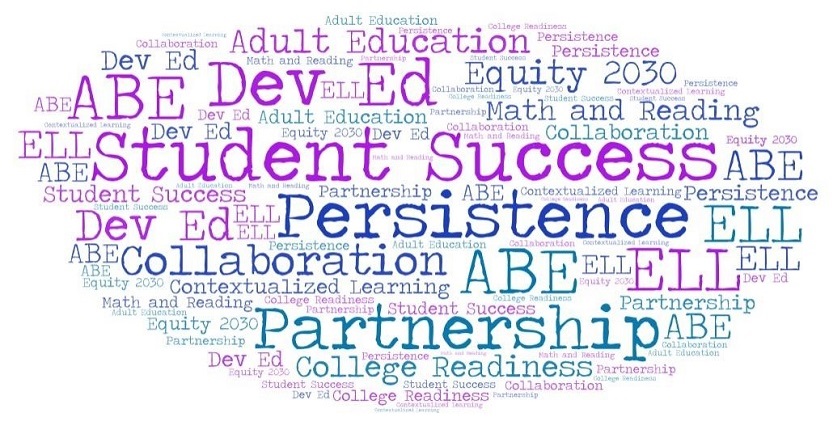Dev Ed/ABE Toolkit: Preface

For unfamiliar terms, agency names, or acronyms, please see Glossary.
Preface
Nationwide, colleges are designing and piloting strategies to accelerate students’ progress through developmental education and into college-level coursework. Research has suggested that the traditional modes of delivering developmental education courses designed to prepare students for college-level coursework are ineffective; they do not lead to outcomes better than those of college-ready students and pose several barriers for students’ success.
The most widespread of practices to reform developmental education are “compressing developmental courses into shorter periods, offering diverse math courses that align with students’ careers, allowing students to determine their own learning pace, and integrating developmental reading and writing instruction into one course.” [The Changing Landscape of Developmental Education Practices: Findings from a National Survey and Interviews with Postsecondary Institutions. Elizabeth Zachry Rutschow, Maria S. Cormier, Dominique Dukes & Diana E. Cruz Zamora, November 2019.] Evaluations of acceleration models suggest that they increase students’ likelihood of completing developmental education, as well as introductory college-level math and English courses, within three years. [Cho, Kopko, Jenkins, & Jaggars, 2012; Edgecombe, Jaggars, Baker, & Bailey, 2013.]
In 2017, the Minnesota legislature passed legislation that required the Minnesota State Board of Trustees to prepare a plan to reform developmental education offerings at all 37 system campuses aimed at reducing the number of students placed into developmental education. The Developmental Education Strategic Roadmap (DESR) outlines the Minnesota State system’s plan for re-imagining and redesigning developmental education to significantly increase the success of all students in developmental education and college-level gateway courses towards an increase of overall college degree, certificate, or diploma completion. ABE was identified as a desirable partner for achieving improved outcomes. [Developmental Education Strategic Roadmap (PDF).]
So why has this Toolkit on creating a Dev Ed/ABE partnership for developmental education in Minnesota been created?
 Each campus in the Minnesota State system is uniquely responsible for implementing the changes needed in developmental education to meet the goals of the DESR. This Toolkit has been developed as a useful resource to help train and support campuses and Adult Education programs in a simplified, straightforward way, providing ideas and resources for beginning a Developmental Education/Adult Basic Education (Dev Ed/ABE) partnership, even if it begins with just one course.
Each campus in the Minnesota State system is uniquely responsible for implementing the changes needed in developmental education to meet the goals of the DESR. This Toolkit has been developed as a useful resource to help train and support campuses and Adult Education programs in a simplified, straightforward way, providing ideas and resources for beginning a Developmental Education/Adult Basic Education (Dev Ed/ABE) partnership, even if it begins with just one course.
As of the writing of this Toolkit, 19 Minnesota State campus/ABE partnerships have been identified, each with varying scope and breadth (listed at the end of this section). Some partnerships have been created for a single dev ed course where a faculty member teaches the course and the ABE instructor is available for extra learning support and life skills. Whereas, in other partnerships, ABE is more integrated in the course, in a co-teaching manner and may also be located on the campus. Faculty member and ABE instructor work along-side each other, each with their own defined and complementary role.
Regardless of size and scope of the integration, Minnesota partnership data to date demonstrates increased student success rates including increased dev ed pass rates, shortening of time in developmental education resulting in expeditious student progression into their program of study, and increased student confidence leading to persistence.
Continue >>
View full Toolkit
You can view and download the full Dev Ed/ABE Toolkit below.
General Toolkit inquiries and/or feedback should be directed to:
- Russ Fraenkel, Consultant, dba Leading-Edge Collaborations, Inc., [email protected]
- Lesley Blicker, Consultant, dba DesignWorks, [email protected]